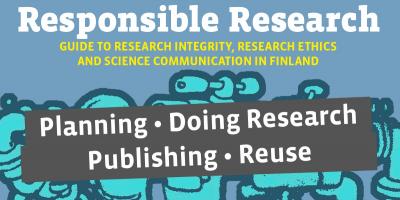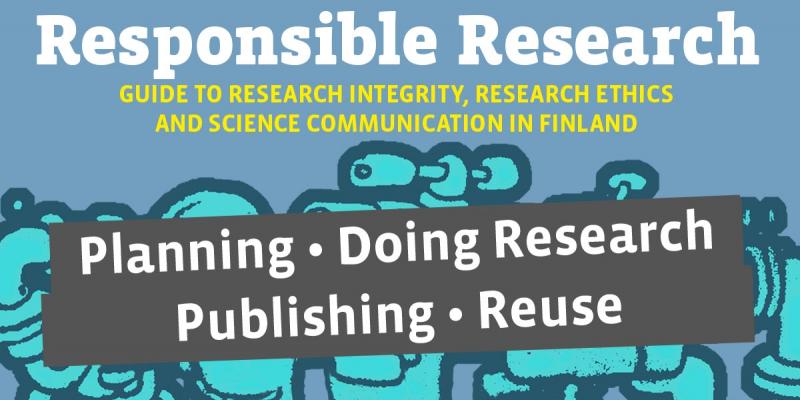In decision-making, attention should be paid to up-to-date expert information in all its diversity.
In the 21st century, the rise of the internet and new media has politicised expertise and information in a new way. Expertise has become commonplace, while simultaneously becoming commercialised and less clear-cut than in the past.
The manipulation and falsification of information is an inescapable feature of the media environment of modern society. Information has an impact on people and important decisions are made on the basis of it, but it is also used to lead people astray and change their opinions.
Expertise has become commonplace, while simultaneously becoming commercialised and less clear-cut than in the past.
All of this has placed the traditionally high and respected status of the expert on shaky ground. Who really is a proper expert and how can we tell what kind of information we can trust?
Knowledge is power
In an information society, information and discussion of information are a concrete form of exercising power. Relying on too simple datasets and expert statements can result in unsustainable decisions and create polarised concepts of social reality.
The Finnish Parliament’s legislative drafting should use the best expert information available to support sustainable political decisions. Therefore, in decision-making, attention should be paid to up-to-date expert information in all its diversity.
he challenge of modern expertise is analyse and synthesise mutually critical forms of data.
In today’s complex society, the question of expert information does not simply concern facts produced by one person or institution, for example. Instead, expertise demands a complete understanding of all the data, attained through multi-faceted and sometimes complicated dialogue. Expertise thus requires the ability to understand the points of view and dialogue of different and often contradictory forms of expertise.
Modern expertise is also especially characterised by data produced by means of different information technology tools, often derived from vast streams of information. The challenge of modern expertise is analyse and synthesise mutually critical forms of data.
Counter-information
Counter-information seeks to respond to these basic questions of modern expertise. It can be used to work out what the different locations, forms and creators of expertise are in today’s society. It tells us where information and expertise is produced and distributed.
The purpose of counter-information is also to ask who might be an expert and what kind of expertise models and criteria are available. How can different expertises be identified? How can experts be heard and how can different experts be incorporated in the interactive process in which they set their own knowledge and vision against the knowledge of different kinds of experts?
Counter-information aims for a reciprocal information forming process between different experts and politicians, in which scientific expertise as well as expertise based on vision, experience and a particular vantage point become recognised as equal sub-areas of information.
In counter-information, the starting point is the assumption that an oppositional and reciprocal information forming process makes it possible to bring together information that is capable of scientific competence but also of a critical approach, innovativeness, vision and, above all, dialogue. Producing this type of information is an essential part of society’s process of envisaging the future and it can rightly offer multi-faceted and different visions, initiatives and solutions to questions concerning the future.
Types of counter-information expertise
The concept of counter-information is based on recognising four different types of expertise and the open and critical dialogue between them. These types of expertise are:
Modern academic expertise: Based on long and wide-ranging education. Experience of different universities or higher education organisations at home and abroad. Academic experts have excellent language skills. They have good networks in their own country and abroad, and they know how to seek out and obtain information using IT equipment and via their peer networks. Academic experts are excellent at seeking out information, processing it and refining it. Modern societies by definition depend on academic expertise in many ways.
By their nature, the activities of academic experts are to understand, explain, normalise, organise, consider and criticise. Their expertise is accrued slowly, within a framework of education, research and feedback obtained through research. Academic knowledge changes slowly as the aim is to maintain the greatest possible objectivity, neutrality and truth. Academic research is always critical by nature, which is what makes it credible.
Vantage point-based expertise: journalists, the media, third and fourth sector actors, trade unions, entrepreneurs and actors in non-governmental organisations. Their work usually revolves around concrete questions but it also needs and produces a large amount of information, research and understanding of different issues and change processes.
Experience-based expertise: Experience-based expertise generally refers to expertise that has developed through the long-term experience amassed by a person or sometimes also an organisation. Examples of experience-based expertise include people who have been through mental health problems or the drug or alcohol addiction cycle, who learn through education and guidance to put their experience into words and make use of it. Sports coaches and entrepreneurs can also be seen as having experience-based expertise.
Vision-based expertise: Vision-based expertise is formed from working and operating in more strictly delimited non-governmental and environmental organisations. Vision-based experts may also be artists and content-providers in different sectors, such as documentary makers, theatre directors, scriptwriters and authors. The business community and think-tanks may also be seen as vision-based experts. These groups actively monitor what is going on in society and often carry out background research for their projects. They have a clear view of the direction in which things should be developed.
Mikko Jakonen, Senior Lecturer in Cultural Policy, University of Jyväskylä
Further information:
Mikko Jakonen: Vastatieto – Tulevaisuuden asiantuntijuutta etsimässä. Publication 1/2017 of the Finnish Parliament’s Committee for the Future. URL: https://www.eduskunta.fi/FI/tietoaeduskunnasta/julkaisut/Documents/tuvj_1+2017.pdf
You might also be interested in
Tämä teos on lisensoitu Creative Commons Nimeä 4.0 Kansainvälinen -lisenssillä. Detta verk är licensierat under en Creative Commons Erkännande 4.0 Licens. This work is licensed under a Creative Commons Attribution 4.0 International license.

